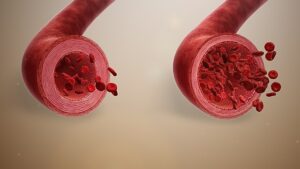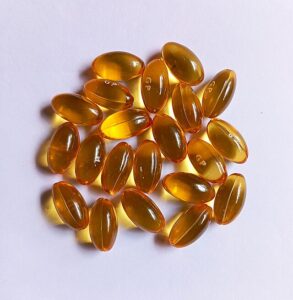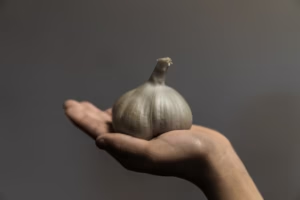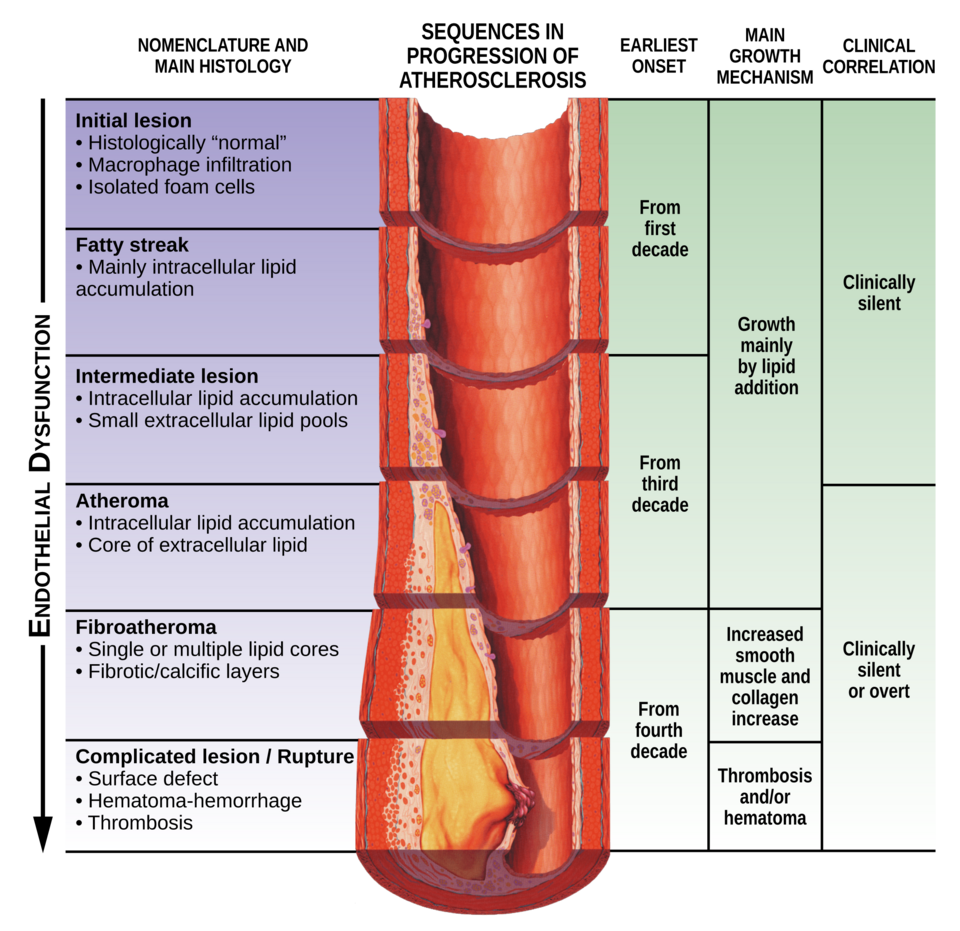Can Garlic Lower Blood Pressure? Science-Backed Facts
You’ve heard garlic can lower blood pressure. But does it really work?
More importantly, how does it compare to prescription medications? Let’s look at what science actually shows.
High blood pressure (hypertension – when blood pushes too hard against artery walls) affects nearly half of American adults. It’s a leading cause of heart attacks and strokes.
So finding effective treatments matters. Plus, many people prefer natural options when they’re safe and proven.
What the Research Really Shows
The good news is garlic does lower blood pressure. However, it’s not magic.
Multiple studies have tested garlic supplements in people with high blood pressure. Then, researchers compared the results to people taking placebos (fake pills with no medicine).
A 2008 review looked at multiple studies. Researchers found garlic worked best for people who already had high blood pressure.
If your blood pressure is normal, garlic won’t do much. But if it’s elevated, you might see real benefits.
Who Benefits Most?
You’re more likely to see results if you have mild to moderate hypertension. That means blood pressure between 130-159 systolic (the top number).
Also, the higher your starting blood pressure, the better garlic tends to work. Think of it like this: garlic helps your body regulate pressure naturally.
Study Spotlight
A 2013 clinical trial tested aged garlic extract (AGE – garlic aged for 20+ months) in people with uncontrolled blood pressure. Participants took 480 mg daily for 12 weeks.
Results? Blood pressure dropped by nearly 12 mm Hg systolic. Plus, the supplement was well-tolerated with minimal side effects.
Understanding Blood Pressure Basics
Before we go deeper, let’s make sure you understand the numbers. Blood pressure has two parts: systolic and diastolic.
Systolic (the top number) measures pressure when your heart beats. Diastolic (the bottom number) measures pressure between beats.
Normal blood pressure is below 120/80 mm Hg. Stage 1 hypertension starts at 130/80 mm Hg.
Stage 2 hypertension is 140/90 mm Hg or higher. At this level, you definitely need treatment.
Why High Blood Pressure Matters
High blood pressure damages your arteries over time. It forces your heart to work harder than it should.
This can lead to heart attacks, strokes, kidney disease, and heart failure. That’s why doctors call it “the silent killer.”
According to research in Nutrients, even modest blood pressure reductions cut your cardiovascular risk. So every point you lower matters for long-term health.
How Garlic Actually Works

Garlic isn’t just a tasty vegetable. It contains powerful compounds that affect your cardiovascular system.
When you crush or chop fresh garlic, an enzyme reaction creates allicin. This sulfur compound is responsible for garlic’s smell and many of its health benefits.
The Science Behind the Effect
Garlic helps lower blood pressure through several mechanisms (ways it works). First, it increases nitric oxide (NO – a molecule that relaxes blood vessels) production.
When vessels relax, they widen and blood flows more easily. This naturally lowers the pressure.
Second, garlic produces hydrogen sulfide (H2S – another signaling molecule) in your body. This compound also helps blood vessels relax.
Plus, it has antioxidant effects that protect your cardiovascular system. So garlic works through multiple pathways, not just one.
“Garlic’s sulfur compounds activate enzymes producing nitric oxide and hydrogen sulfide, leading to significant blood vessel relaxation.”
Additional Cardiovascular Benefits
Garlic does more than just lower blood pressure. It also improves arterial stiffness (how flexible your blood vessels are).
Research shows it can lower LDL cholesterol (the “bad” kind) by small amounts. Plus, it has anti-inflammatory properties that protect your heart.
Some studies even suggest garlic improves gut bacteria (microbiome – the helpful bacteria in your intestines). A healthy gut microbiome is linked to better blood pressure control.
Types of Garlic: Which Works Best?
Not all garlic products are equal. The form you choose affects how well it works.
Let’s break down your options so you can pick the best one.
Fresh Raw Garlic
This has the highest allicin potential when crushed or chopped. However, you need to eat 2-4 cloves daily to see benefits.
The downside? Bad breath, body odor, and possible stomach upset. Plus, cooking destroys much of the allicin.
Aged Garlic Extract (AGE)
This is garlic that’s been aged for 20 months or more. The aging process creates stable, standardized compounds.
Most research uses aged garlic extract. It’s better tolerated than raw garlic and easier to dose consistently.
Why Aged Garlic Extract Wins

AGE contains S-allylcysteine (SAC – a stable sulfur compound), which doesn’t cause odor. It’s been tested in more clinical trials than other forms.
Plus, it causes fewer digestive side effects. So if you want the most reliable results, choose aged garlic extract.
Garlic Powder Supplements
These are dried and ground garlic formed into pills. Quality varies significantly between brands.
Look for products standardized to contain specific amounts of allicin. Also, enteric-coated pills protect garlic from stomach acid.
Garlic Oil
This contains oil-soluble compounds but may lack water-soluble allicin. It’s less studied for blood pressure.
Therefore, it’s not the best choice if your main goal is lowering blood pressure.
Garlic vs Blood Pressure Pills: The Real Comparison
Now for the question everyone wants answered. How does garlic stack up against prescription medications?
Let’s look at the facts honestly. No hype, just science.
| Factor | Garlic Supplements | Prescription Medications |
|---|---|---|
| Blood Pressure Reduction | 8-12 mm Hg systolic (in people with hypertension) | 10-20+ mm Hg systolic (varies by drug and dose) |
| Evidence Level | Moderate – multiple studies show benefit | Strong – extensive trials prove effectiveness |
| Time to Work | 8-12 weeks for full effect | 2-4 weeks for most drugs |
| Side Effects | Mild – odor, possible digestive upset, bleeding risk | Varies – dry cough, dizziness, fatigue possible |
| Cost | $10-30/month (not covered by insurance) | $4-50/month (often insurance covered) |
| Proven Outcomes | Lowers BP; heart attack/stroke prevention unclear | Proven to reduce heart attacks, strokes, death |
| Best Used For | Mild hypertension, add-on therapy | All levels of hypertension, proven protection |
Common Blood Pressure Medications
Doctors usually prescribe ACE inhibitors (angiotensin-converting enzyme inhibitors – drugs that block an enzyme) or ARBs (angiotensin receptor blockers) as first-line treatments. These drugs work by affecting the RAAS (renin-angiotensin-aldosterone system – a hormone system controlling blood pressure).
According to research in Hypertension, both drug classes effectively lower blood pressure. Plus, large studies prove they reduce heart attacks and strokes.
ACE inhibitors can cause a dry cough in some people. ARBs usually don’t cause this side effect.
Both can cause dizziness, especially when you first start taking them. However, most people tolerate them well.
The Honest Truth About Garlic
Garlic can lower blood pressure. But it’s not as powerful as prescription medications.
Also, we don’t have long-term studies showing garlic prevents heart attacks or strokes. Medications do have this proof.
“Garlic supplements may be considered a safe add-on to standard treatment, but shouldn’t replace proven medications for moderate to severe hypertension.”
When to Use Garlic vs Medications

So when should you try garlic? And when do you need prescription drugs?
Here’s a practical guide based on your situation.
Consider Garlic as Your Primary Approach If:
- Your blood pressure is mildly elevated (130-139/80-89 mm Hg)
- You’re young and don’t have other health problems
- Your doctor approves trying lifestyle changes first
- You’re willing to monitor your blood pressure closely
- You commit to using it consistently for 12 weeks
You Need Prescription Medication If:
- Your blood pressure is 140/90 mm Hg or higher
- You have diabetes, kidney disease, or heart disease
- You’ve already had a heart attack or stroke
- Lifestyle changes haven’t worked after 3-6 months
- Your doctor recommends medication based on your overall risk
Can You Use Both Together?
Yes, but only with your doctor’s approval. Garlic can complement prescription medications.
However, garlic may interact with some drugs. It can increase bleeding risk if you take blood thinners.
Always tell your doctor about all supplements you take. They can adjust your medication doses if needed.
Plus, they’ll monitor you for any problems with the combination.
How to Use Garlic for Blood Pressure
If you decide to try garlic, doing it correctly matters. Here’s what you need to know.
Recommended Doses
Most studies used these amounts:
- Aged garlic extract: 480-960 mg daily (look for 1.2-2.4 mg S-allylcysteine)
- Garlic powder: 600-900 mg daily
- Fresh garlic: 2-4 cloves (4-8 grams) daily
Take garlic supplements with food to reduce stomach upset. Also, choose enteric-coated pills if possible.
These dissolve in your intestines, not your stomach. So they cause less odor and digestive problems.
What to Expect: Timeline
Don’t expect overnight results. Garlic works gradually over weeks.
Typical Timeline for Results
Monitoring Your Progress
Buy a quality home blood pressure monitor. Take measurements at the same time each day.
Morning readings are usually most consistent. Keep a log of your numbers.
Share this information with your doctor at regular check-ups. Then, they can tell if garlic is working for you.
If your blood pressure doesn’t improve after 12 weeks, you’ll need a different approach.
Safety and Side Effects
Garlic is generally safe. However, it can cause problems for some people.
Being aware of potential issues helps you use it safely.
Common Side Effects
The most common complaints are odor-related. Garlic breath and body odor bother many people.
Aged garlic extract causes less odor than raw garlic. So switch to AGE if smell is a problem.
Some people get digestive upset, including heartburn or gas. Taking garlic with food usually helps.
If problems persist, try a lower dose or different form. Also, enteric-coated pills reduce stomach irritation.
Drug Interactions
Garlic can interact with several medications. This is a serious safety concern.
Important Drug Interactions
Blood thinners: Garlic can increase bleeding risk if you take warfarin, aspirin, or clopidogrel. Talk to your doctor before combining them.
HIV medications: Garlic may reduce the effectiveness of some HIV drugs like saquinavir. Don’t combine without medical supervision.
Diabetes drugs: Garlic might lower blood sugar too much when combined with diabetes medications. Monitor your blood sugar closely.
Other blood pressure drugs: Combining garlic with BP medications might lower pressure too much. Your doctor may need to adjust doses.
According to the National Center for Complementary and Integrative Health, you should stop garlic supplements two weeks before surgery. This prevents excess bleeding during and after procedures.
Who Should Avoid Garlic Supplements?
Some people shouldn’t take garlic supplements at all. This includes people with bleeding disorders (conditions that make you bleed too easily).
Also, pregnant and breastfeeding women should stick to food amounts only. Large supplemental doses haven’t been well studied in pregnancy.
If you have low blood pressure already, garlic could make it worse. This might cause dizziness or fainting.
Beyond Garlic: Complete Blood Pressure Management
Garlic works best as part of a bigger plan. Combining it with other proven strategies gives you the best results.
Plus, these changes benefit your overall health, not just blood pressure.
Diet Changes That Help
The DASH diet (Dietary Approaches to Stop Hypertension) is proven to lower blood pressure. It focuses on fruits, vegetables, whole grains, and lean protein.
Also, reducing sodium helps most people. Aim for less than 2,300 mg daily.
Even better, try for 1,500 mg if you have high blood pressure. Small sodium reductions can drop blood pressure by 5-6 mm Hg.
That’s almost as much as some medications provide.
Exercise Matters
Regular physical activity powerfully lowers blood pressure. Aim for 150 minutes of moderate exercise weekly.
This could be brisk walking, swimming, or cycling. You don’t need intense workouts to see benefits.
Exercise works by improving blood vessel function. Plus, it helps with weight management and stress reduction.
Benefits start within weeks of beginning a consistent routine.
Stress Management
Chronic stress contributes to high blood pressure. Therefore, finding healthy ways to manage stress matters.
Meditation, deep breathing, and yoga all help. Even simple strategies like taking regular breaks work.
For more comprehensive information about natural remedies vs prescription drugs, check out our detailed guide. It’ll help you understand when each approach makes sense.
The Bottom Line on Garlic and Blood Pressure
So can garlic lower blood pressure? Yes, it can.
Research shows garlic reduces blood pressure by 8-12 mm Hg in people with hypertension. This is a meaningful reduction that may lower cardiovascular risk.
Key Takeaways
- Garlic works best for mild to moderate hypertension
- Aged garlic extract is the most reliable form
- Effects develop gradually over 8-12 weeks
- Garlic can complement medications but shouldn’t replace them for serious hypertension
- Always tell your doctor before starting garlic supplements
- Combine garlic with diet, exercise, and stress management for best results
However, garlic isn’t a replacement for prescription medications in everyone. If you have stage 2 hypertension or other health conditions, you need proven medical treatment.
Garlic works best for people with mildly elevated blood pressure. It can also enhance the effects of lifestyle changes and medications.
The decision to use garlic should be made with your healthcare provider. They can help you determine if it’s right for your situation.
Plus, they’ll monitor your progress and adjust your treatment plan as needed.
Critical Reminder
Never stop taking prescribed blood pressure medication without your doctor’s approval. Stopping suddenly can cause dangerous blood pressure spikes.
If you want to try garlic or other natural approaches, work with your healthcare team. They can help you do it safely while protecting your health.
High blood pressure is serious, but it’s also manageable. With the right combination of treatments, most people can achieve healthy blood pressure.

Garlic has stood the test of time as a medicinal food. Now, modern research confirms it really can help lower blood pressure when used properly.
References
- Sleiman C, Daou RM, Al Hazzouri A, et al. Garlic and Hypertension: Efficacy, Mechanism of Action, and Clinical Implications. Nutrients. 2024;16(17):2895. https://pubmed.ncbi.nlm.nih.gov/39275211/
- Ried K, Frank OR, Stocks NP. Effect of garlic on blood pressure: A systematic review and meta-analysis. BMC Cardiovascular Disorders. 2008;8:13. https://www.ncbi.nlm.nih.gov/pmc/articles/PMC2442048/
- Ried K, Travica N, Sali A. Potential of garlic (Allium sativum) in lowering high blood pressure: mechanisms of action and clinical relevance. Integrated Blood Pressure Control. 2014;7:71-82. https://www.ncbi.nlm.nih.gov/pmc/articles/PMC4266250/
- Ried K, Frank OR, Stocks NP. Aged garlic extract reduces blood pressure in hypertensives: a dose-response trial. European Journal of Clinical Nutrition. 2013;67(1):64-70. https://pubmed.ncbi.nlm.nih.gov/23169470/
- Chen RJ, Suchard MA, Krumholz HM, et al. Comparative First-Line Effectiveness and Safety of ACE Inhibitors and Angiotensin Receptor Blockers: A Multinational Cohort Study. Hypertension. 2021;78(3):591-603. https://www.ahajournals.org/doi/10.1161/HYPERTENSIONAHA.120.16667
- Ried K, Toben C, Fakler P. Garlic lowers blood pressure in hypertensive subjects, improves arterial stiffness and gut microbiota: A review and meta-analysis. Experimental and Therapeutic Medicine. 2020;19(2):1472-1478. https://pmc.ncbi.nlm.nih.gov/articles/PMC6966103/
- National Center for Complementary and Integrative Health. Garlic. Updated December 2023. https://www.nccih.nih.gov/health/garlic
- Peresuodei TS, Worlu C, Ihim SA, et al. A Comparative Study of the Safety and Efficacy Between Angiotensin-Converting Enzyme Inhibitors and Angiotensin Receptor Blockers on the Management of Hypertension: A Systematic Review. Cureus. 2024;16(2):e54470. https://pmc.ncbi.nlm.nih.gov/articles/PMC10944326/
Related Articles
Continue exploring natural approaches to cardiovascular health:
- Natural Remedies vs Prescription Drugs: What’s the Difference? – Learn when to use natural approaches and when medication is essential
- High Cholesterol: Complete Guide to Understanding and Managing High LDL Levels – Understand another key cardiovascular risk factor
- Can Oatmeal Lower Cholesterol? The Science Behind Oats vs. Statins
About the Author
The Remedy Verified Team translates complex metabolic science into clear, practical strategies for everyday health.
Medical Disclaimer
This article is for informational and educational purposes only. It doesn’t constitute medical advice.
It’s not intended to replace professional medical consultation, diagnosis, or treatment. Always seek your physician’s advice with questions about medical conditions or treatment options.
Never disregard professional medical advice or delay seeking it because of this article. If you think you have a medical emergency, call your doctor immediately.
The information here represents a general overview and may not apply to you. Decisions about health treatments should be made with qualified healthcare professionals.
Garlic supplements may interact with medications and may not be appropriate for everyone. This is especially true if you take blood thinners or have surgery scheduled.
Never stop taking prescribed blood pressure medication without consulting your healthcare provider. Doing so can result in dangerous blood pressure spikes and increased cardiovascular risk.

